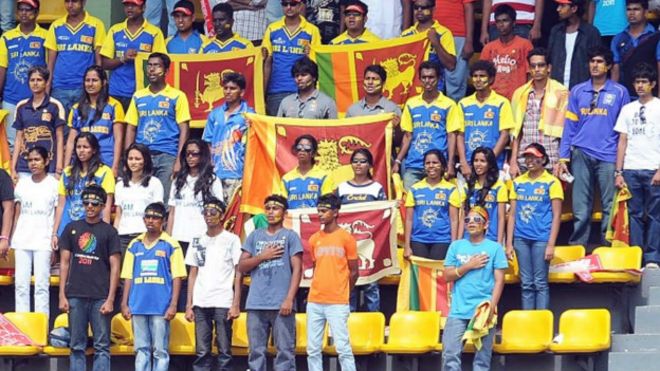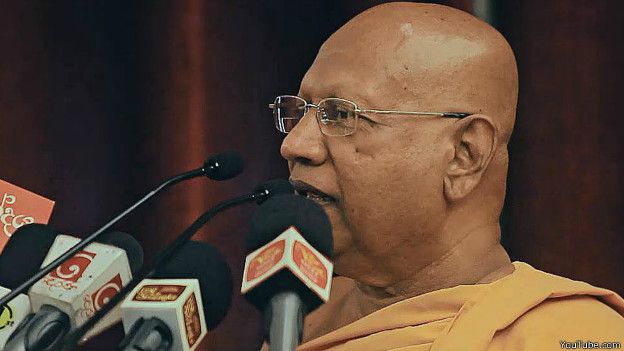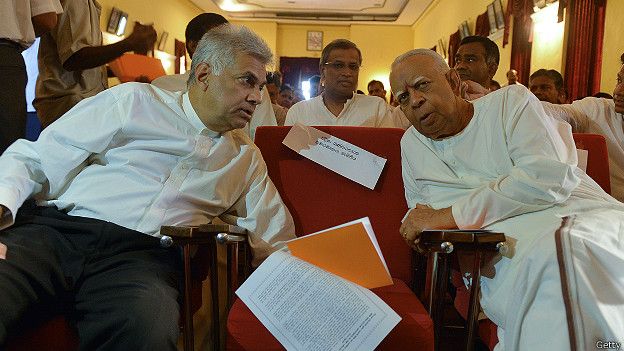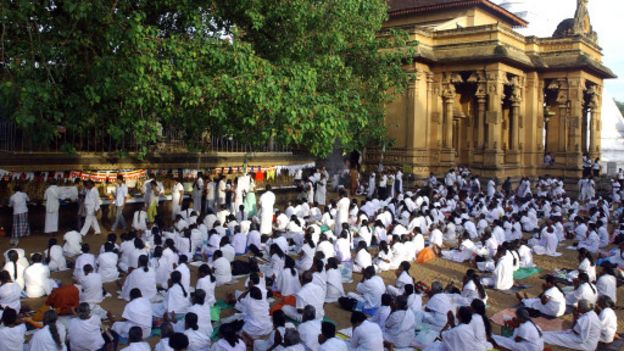Friday, 01 January 2016 23:14
By Abdur Rahmaan Umar
Zaid peered at the multi-coloured graphs scattered on the table, some half buried beneath paper-piles of calculations. Taking a cautious step back, he ran his hand through is untidy mop of hair, a few flakes of dandruff floated gently down to rest on his shoulder.
“What’s up, brother?” he questioned, gently prodding Yusuf on his shoulder.
Yusuf barely looked up and continued tapping away at his keyboard. Numbers flew across the screen giving birth to multi-coloured graphs.
Zaid prodded him again, forcing his chair to glide away from the desk, “What’s with the graphs?”
Yusuf pulled himself back into position sending a few pages drifting to the floor, “Year-end audit,” he mumbled, as he reached for the fugitive pages.
Zaid bent his head low, brushing his falling mop out of his eyes, looking at Yusuf in the eye, he exclaimed, “Let me get this right! Just let me get this right!” he sighed deeply. “You, Doctor Yusuf Ismail working for a government clinic are doing a year-end audit?”
Throwing his arms in the air in mock defeat, he continued, “What in the world do you need to do an audit for? You get your salary, you spend your salary and you see what’s left, simple! What’s to audit?”
He pulled a brightly coloured graph off the table and peered at it intensely. Yusuf gently tugged the sheet away from him, turned it around and handed it back, “Upside down,” he said, straightening the papers close to him.
“Ok so what’s this,” asked Zaid reading from the page, “Salaah analysis? What kind of year end audit is this?”
Yusuf nudged his chair away from the table spinning round to face Yusuf, “That’s what I’m analysing! My salaah and other religious actions.”
“But why?” queried Zaid, cocking his head to one side scattering a few more flakes of dandruff.
“So I can see if I’m improving or not”
Zaid dusted his shoulders and making vain efforts to bring his hair under control, sending a fresh crop of dandruff snow. Cupping his puzzled face in his hands, he asked, “I don’t understand. I really don’t understand.”
“Let me explain”
“Yes, please do! ‘Cause I really don’t understand why you doing year end audit stuff on your salaah, charity and Quran.”
“You see,” explained Yusuf, taking a long sip from his bottle of Voss mineral water, “Sheikh Hamaad was explaining some time ago that time passes, and with every passing year we come closer to our end.”
“Hey yes, tell me about time passing,” interjected Zaid, “It’s another year gone, the Haajjis are back and next week we start all over again. Crazy how time’s flying.”
“Time will pass,” continued Yusuf draining the last of his bottled water, “But what we do with that time is our choice. We can use it in good or bad.”
“True! But what’s that got to do with this year-end stuff?”
Yusuf flashed an irritated glance at his friend, “Will you let me finish?”
“Ok, ok me I’m silent. You be the lecturer then” laughed Zaid putting his finger on his lips, “I will be the silent student.”
“That’s better,” exclaimed Yusuf, “Sheikh explained that time is valuable and that Allah Ta'ala even took an oath on time in surah Asr (Qur’an 103: 1-2) to emphasise its importance.”
Zaid began reciting, “By time, verily man is at a loss”
Yusuf frowned and said, “I thought you were going to be quiet”
“But this is Quran! Can’t be quiet for Quran,” replied Zaid, staring delinquently at his hands.
“So every year passes and if we don’t check on ourselves the time will just go by and in the end we will be the losers. Hazrat Umar (Radia Allahu anhu) used to say – take your own reckoning before your reckoning is taken,” Yusuf paused, reaching for another bottle of water from under his desk.
“You’re a heavy drinker,” chuckled Zaid.
“And you’re a lousy listener,” complained Yusuf flinging a crumpled page at his friend.
“If we don’t check what we doing,” he sighed, “and that’s what I was trying to do, before you rudely interrupted me, then we will not progress. Sheikh explained that every good business checks its program every month if not daily. And, you could see all the sharp traders in the audience nodding their heads. But if we check then we will know where we can improve and progress.”
“You mean like improve our Aaghirah(Hereafter) profits?” interrupted a smug smile crossing his lips. “We can make the big time up there.”
Yusuf threw another crumpled page, “I give up with you! But yes, that’s the whole thing. If we focus on developing our spiritual selves as much as we do other things we will iron out the problems, and progress so that we are not losers in the end.”
“So I was comparing my salaah, how many I prayed with Jamaat (congregation) and on time. That’s that graph you holding. See, I improved on Esha but Fajr is still my problem, gotta work on that one. So that’s my focus for the next year –Fajr with Jamaat(congregation)!”
“You’ve done pretty well since you started checking on this, exclaimed Zaid waving the page triumphantly in the air, “From one with jamaat to four. That’s a three hundred percent increase. Wow!”
Yusuf looked away bashfully not intending his details be exposed, “Alhamdulillah, only by the Mercy of Allah Ta'ala. When you determined to do some good then Allah Ta'ala will help you. But if I wasn’t checking then I wouldn’t have been aware and I wouldn’t have made the effort to change. I would have been happy with my condition and then regretted in the end.”
“So I check every-day,” he said, proudly waiving his iPhone , “I even have an App called Qamr Deen to record this on a daily basis.”
“Ok, doctor Accountant”, mocked Zaid, “I think you are a techno freak but come let’s draw up some fancy charts for me too. Come next year I also want to show a profit”
*****
We appreciate feedback on our articles. Please send feedback or any constructive comments to: This e-mail address is being protected from spambots. You need JavaScript enabled to view it
To subscribe to our mailing list please send a blank email to: This e-mail address is being protected from spambots. You need JavaScript enabled to view it
Tounsubscribe please click on link found below this message OR send a blank email to This e-mail address is being protected from spambots. You need JavaScript enabled to view it
For general & motivational articles on Islam visit our website: www.eislam.co.za
Find us on Twitter @eislaminfo
If you would like to contribute an article/s to our website please email it to: This e-mail address is being protected from spambots. You need JavaScript enabled to view it
Wednesday, 30 December 2015 17:53
By :Mariam Anwer
‘WHEN there is just one son, parents have to make him live with them; when there are several, it’s easier, as some of them can go abroad. After all, parents should not be left all alone. That is why one should have many children,’ says a mother-of-five empathetically. I remain silent, not agreeing with her simply because not everyone is blessed with children.
My mind shifts to some childless couples and unmarried people I know.
If Allah has kept them barren, what should their outlook be on life during old age?
Should they constantly be complaining to Allah for the fate decreed on them, or should they accept their fate and be content with it, achieving peace of mind?
Almost anyone and everyone can choose to be ungrateful. A short person may wistfully look at taller people and lament on his or her natural stature; a pauper sitting on the curb may stare enviously at the glamorous cars passing by; a blind person can very well gripe about not being able to see; and of course how slightly dark-skinned people wish they had fairer skin.
If one were to cave in to negative thinking, ungratefulness and wistfulness for the blessings one has supposedly missed out on in life, he or she would be losing on something greater: the blessings they have been granted by Allah! Life’s just too short to lose the good moments wishing for what was not meant to be yours in the first place.
The tendency to be ungrateful and negative in thinking is admittedly more common in women; this is a fact that has been mentioned in several Ahadith.
It is common to behold an unmarried girl, desperately wondering why a decent proposal has not come her way. As years pass by, the pressure to marry her off mounts on her parents.
A married woman who has not conceived a child will despair hopelessly, as she hears of the third pregnancy of a friend who got married a year after she did.
Another mother-of-three, standing in her tiny kitchen, may be crying hot tears of envy at thoughts of how other women her age live in compound villas with 24-hour maids. The cycle of ingratitude continues throughout some people’s lives: want something – pine, despair for it – achieved it and forgot about it; want something else – pine, despair for it – got it and forgot about it.
“And He gave you from all you asked of Him. And if you should count the favour/blessings of Allah, you could not enumerate them. Indeed, mankind is most unjust and ungrateful.”
[Surah Al Ibrahim,34]
There is great Divine wisdom behind the concept of being pleased with Allah’s decree, known as “Al-Ridaa Bil-Qadr”. Prophet Muhammad (peace be upon him) prayed for this blessing in one of his ‘masnoon’ dua’s. It is indeed the requisite ticket to blissful peace of mind and unparalleled contentment of soul during this world’s life.
“O Allah I ask you for a reassured soul, that believes in meeting you, and is pleased with Your Decree, and is content with what you have bestowed .”
But how does one achieve this desired goal?
Prophet Muhammad (peace be upon him) taught us a strategy to acquire this state;
“Do not look to those above you. Look to those below you, as it will more likely remind you of Allah’s favors bestowed on you.”
(Al-Bukhari and Muslim)
Allah [subhanahu wa taála] says;
“And do not wish for that by which Allah has made some of you exceed others. For men is a share of what they have earned and for women is a share of what they have earned. And ask Allah of His bounty. Indeed, Allah is ever, of all things Knowing.”
[Surah An Nisa,32]
“…But perhaps you hate a thing and it is good for you and perhaps you love a thing and it is bad for you. And Allah knows, while you know not.”
[Surah Al Baqarah, 216]
Also, we are encouraged to look up to those who do good so that we can try to be like them.
Allah [subhanahu wa taála] says;
“Whatever you have will end, but what Allah has is lasting. And we will surely give those who were patient their reward according to the best of what they used to do. Whoever does righteousness, whether male or female, while he is a believer — We will surely give them their reward according to the best of what they used to do.”
[Surah An Nahl, 96-97]
If one persistently refuses – for Allah’s sake – to wistfully or enviously look at, or think about, people who are better off than him in worldly blessings, eventually he will reach a point when he will never be bothered by, or concerned with, what others have. Instead, he will focus on the good deeds he can do that will grant him a good destination in the Hereafter – the eternal life – where happiness and blessings are everlasting, not fleeting.
On achieving Ridaa Bil-Qadr, an unmarried woman will not feel anything when she hears of girls younger than her getting married or having babies; a childless man will not feel any regret or rancor when his brother begets his tenth child; an old woman, who has outlived her spouse and all her children, will not feel anything when she hears of other families gathering together on Eid. They will instead be content with what Allah has decreed for them and have a kind of peace and calmness inside them that cannot be bought with all the wealth in this world.
Allah [subhanahu wa taála] says;
“Those who have believed and whose hearts are assured by the remembrance of Allah. Unquestionably, by the remembrance of Allah hearts are assured.” [Surah Ar Ra’d,28]
ISLAAMINFO






 AL MASHOORAH : Issue No.06 :
AL MASHOORAH : Issue No.06 : 
 Displaying their ignorance they even called for the banning of the Holy Quran.
Displaying their ignorance they even called for the banning of the Holy Quran.
 by Latheef Farook :
by Latheef Farook :  The displaced people of Musali South, account for some of the most marginalized sections of the population, but the debate that the putative return has spurred in the media and in political circles has cast them as adversaries of both nature and the state".
The displaced people of Musali South, account for some of the most marginalized sections of the population, but the debate that the putative return has spurred in the media and in political circles has cast them as adversaries of both nature and the state". Judging from the subsequent anti Muslim campaign under Rajapaksa government aimed at virtually eliminating the Muslim community it is not difficult to realize now that Muslim owned Musali South lands were acquired deliberately to deprive Muslims of their lands.
Judging from the subsequent anti Muslim campaign under Rajapaksa government aimed at virtually eliminating the Muslim community it is not difficult to realize now that Muslim owned Musali South lands were acquired deliberately to deprive Muslims of their lands.


